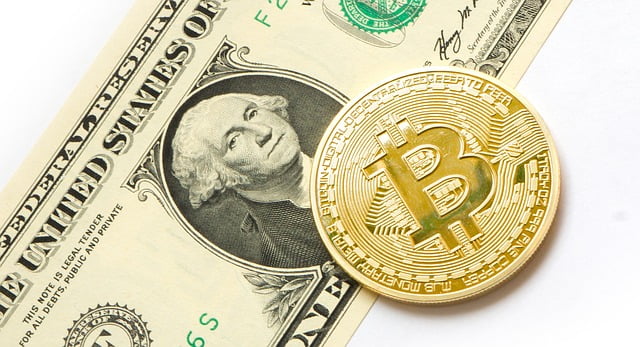Humans are resistant to change. Despite centuries of evolution, we still struggle to wean ourselves off the status quo. Yet one could argue that change is woven into the very fabric of humanity and, as such, we should naturally embrace it. Well, if that’s the case, no one’s told the British. After all, the wider global conversation is turning to the burning question of whether cryptocurrency will bring an end to fiat currency, and they’re still bemoaning the possible loss of 1p and 2p coins.
Depending on your location, the move to a cashless society can either feel very real or little more than a pipe dream. You can pay for a Starbucks with your smartphone in the US and Europe, and use biometrics in parts of Asia. Yet venture away from world centers, and there are plenty of one-horse towns with limited internet, no banks, and nowhere to stick your plastic.
In such places, the move to a cashless society seems centuries away, much less a move to crypto. And yet, in other developing countries, with political uncertainty and galloping inflation, despite its volatility, crypto may present a more viable option as a store of value.
What’s the Difference between Fiat Currency and Cryptocurrency?
Popularly known as “money,” fiat currency is legal currency that a government has declared “legal tender.” This differs from cryptocurrency not only in the tangible versus the digital, but in the obvious fact that cryptocurrency is not legally backed by any governments – yet.
Fiat currency traditionally takes the form of coins and bills, although in many cases, it’s actually digitized, if you consider bank transfers and electronic payments. The supply of fiat currency is controlled by the government, whereas the supply of crypto is controlled by an algorithm.
And while you can pay your taxes with your fiat currency, you have to pay taxes on your cryptocurrency. So, the differences are small but substantial, although the two share many traits, such as transfer of value, supply and demand, trade, and other economic concepts.
Will Cryptocurrency Replace Fiat Currency?
“One major pro of cryptocurrency is that it is another leap forward toward a cashless society, a trend that continues to gain momentum,” says Clayton Moore, CEO of NetCents, an online payment processing platform. “As the desire for freedom from cash continues, cryptocurrency and blockchain will continue to update outdated financial systems. We are seeing this now as financial institutions are adopting crypto and blockchain, all in advance of the demise of fiat.”
Cryptocurrency has many advantages over fiat. One of the largest is being able to use it relatively cheaply, internationally, and practically simultaneously. “Have you ever tried to send USD from your US bank account to an RMB bank account in China on a Saturday in less than 24 hours? It’s simply impossible,” remarks Hugo Renaudin, CPO of Legolas Exchange.
However, it pays to remember that fiat currencies can take digital forms as well. While we might (and that’s a big hypothetical, considering the British) see cold, hard cash as being on its way out, it’s unlikely that governments will rescind control over their currencies to a decentralized system.
“Countries and their regulators will likely not abandon their control on their own fiat currency for a cryptocurrency [over] which they have no power,” Renaudin affirms. “Actually, we’ll likely see government-backed cryptos, where states take the best of crypto and the blockchain technology to issue a modern version of fiat money.”
It was never really possible to imagine a world in which the UK would give up the pound for the euro. It’s even harder to consider the demise of its legal tender in favor of digital gold, and other countries following suit. But then again, centuries of evolution just may provide us with the coping mechanisms needed to say goodbye to fiat currency as we know it.

